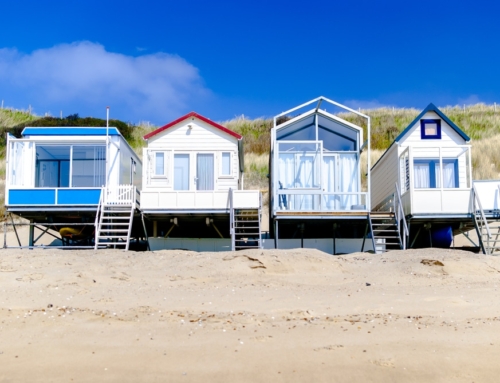Wondering about options available for underwater homes? If the bank denies a short sale, you may have to file for bankruptcy.
Q: My husband and I purchased a condotel unit in Hawaii in 2006 and the property is way under the water now. We have been trying very hard to keep up with mortgage and other expenses relating to this rental property for almost 7 years.
Not only that the property is under water, we have been losing money at a rate of $20,000 or more every year since we purchased the unit.
We pulled some money out of our 401(k), cut back our living expenses, borrowed money from family to keep up with the loss. My husband is going to retire next year. I am currently battling with cancer and will probably retire early next year as well, so we cannot continue to throw the money into this investment.
Our mortgage balance is approximately $175,000 and similar units are selling around $50,000. We had a potential short sale offer for $55,000 but our lender told us that they “don’t do short sales.” I asked them if they could work with me on rate modification and some debt forgiveness. They told me that they did not do it for anyone and I should go and file for bankruptcy. I asked them if they would accept deed-in-lieu of foreclosure. They told me that they do not.
I had not missed a payment for the last 7 years until this month. I do not want to file for bankruptcy protection unless I have to. We make decent income for our monthly expenses but not enough to cover the losses from our rental property. I have good equity on my residential property and other assets like cars, personal property and pensions. I worry that the bank will try to obtain a deficiency judgment and go after my house and other assets to collect the debt. I may be in retirement when this is settled.
Is there any way for me to protect my home, car, pensions, and bank account in Georgia?
A: We’re sorry that you’re facing such severe health issues and financial difficulties. At this point, you should not use any of your retirement money to pay your Hawaii expenses. What you should do is talk to a bankruptcy attorney and discuss your options. While you may not want to file for bankruptcy, you may have to. (If you’re earning a good income, the question may be whether you are eligible to file for bankruptcy.)
But, it would be good for you to know whether the lender has the right to obtain a deficiency judgment against you. Since the property you are dealing with is an investment property it would seem that the lender would have the option to pursue you for any deficiency after they foreclose and sell the property if they net out at far less than what you owe on the property.
However, creditors generally can’t take your retirement assets. Since you’re not obligated to pony them up, it’s unfortunate that you used retirement funds to try to keep up with this property in order to stay current.
But the real question is what’s going on with the numbers for this investment. Nothing adds up about your losses.
If you purchased this property, was it in a development for affluent travelers? Otherwise, we don’t understand how your losses can be $20,000 per year unless the condominium/hotel unit has a very low occupancy level. Usually those condominiums can come close to breakeven if they have a moderately high occupancy level. Is the development as a whole doing poorly? Have hotel occupancy rates dropped drastically in your development? Did you ever end up breaking even with the purchase when you first purchased it? In addition to talking to the bankruptcy attorney, you might want to investigate whether there have been any issues with the developer of the hotel property.
You might find out that the developer was overly optimistic on the rental estimates on the disclosures to you and that the developer might be in litigation with other owners. It’s certainly worth investigating further to see what other owners in the development have done.
It’s possible that nothing has occurred and that the Great Recession is the sole cause of the drop in occupancy and losses in the development. As with any investment, you run the risk of a loss or a gain. Many people that purchased second homes, timeshares and condominium hotel units never considered the issue of reselling their properties in a down-market, but even in strong markets, timeshares and condominium hotel units have a limited market and are susceptible to price drops.
If you decide to file for bankruptcy, your retirement funds should be safe and depending on the laws in the state in which you live and file for bankruptcy, your home, car and some other personal effects might be protected as well. The real question would be for you when and if the lender decided to pursue a judgment against you. At that time, you’d probably decide to file. For now, you should consult with an attorney to see where things would stand and then be prepared.






Leave A Comment